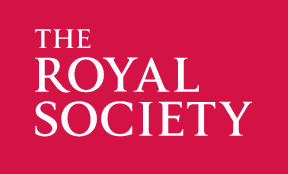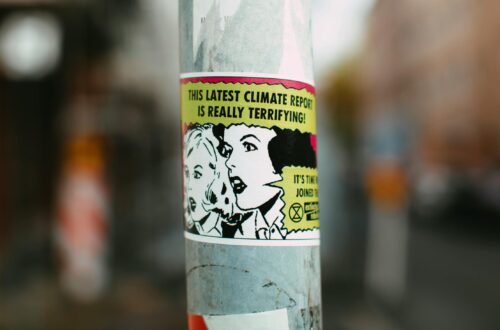Lessons from the Royal Society’s 1985 Report
Another crucial aspect of effective scientific research is how well it is communicated to and benefits society. In an age of constant innovation and where resource consumption heavily impacts nature and the environment, the importance of promoting public engagement with science becomes clear. It ties back to the fundamental question: why do we do science? Science is undeniably a cornerstone of modern society, driving technological advancements, improving healthcare, and addressing global challenges such as climate change and pandemics. Despite its profound impact, there is often a significant gap between scientific communities and the general public. This gap can lead to misunderstandings, mistrust, and a lack of support for scientific endeavors. Promoting public engagement with science is therefore crucial for fostering an informed and supportive society. The Royal Society’s 1985 report on the public understanding of science provides valuable insights into why this engagement is important and how it can be achieved.

Bridging the Gap: Scientists and Public Communication
The Royal Society’s 1985 report on the public understanding of science remains seminal in the discourse on science communication. As we face the pressing challenge of climate change, its recommendations are relevant and essential. This blog explores the recommendations and their critical importance in today’s context.
1. Enhancing Media Relations Scientists must improve their communication with all segments of the public, especially the media. Effective communication can foster better relationships with journalists, policymakers, and industry leaders, ensuring that accurate and clear scientific information reaches the public.
2. Embracing Media Involvement Historically, scientists have often left public communication to others, partly due to a stigma associated with media engagement. This attitude is outdated. Today, scientists have a professional responsibility to communicate their work to the public, as they are accountable to taxpayers who fund their research.
3. Formal Training in Science Communication Science communication should be formally taught to all professional scientists. Educational programs should include opportunities for scientists to practice explaining their work in simple, jargon-free terms. For example, every Ph.D. candidate should be required to present their research to a lay audience, ensuring they can communicate effectively outside the academic sphere.
4. Understanding Media Constraints To communicate effectively, scientists must understand the constraints and demands of the media. This knowledge can help avoid distortion and ensure that scientific issues are presented accurately.
5. Institutional Support for Public Engagement Scientific institutions, universities, and other organizations should evaluate their capacity to improve public understanding of science. This can include training programs on communication, organizing public lectures and demonstrations, and providing media briefings.
6. Providing Information to Journalists Mechanisms such as press seminars and briefings can help provide journalists with accurate scientific information. In the US, the Scientist’s Institute for Scientific Information has established a media resource service, which connects experts with the press. Similar initiatives are encouraged worldwide.
7. Engaging Parliamentarians Policymakers need to stay informed about scientific developments relevant to public policy. The scientific community should develop ways to ensure that parliamentarians are well-versed in current scientific issues.
8. Strengthening Public Relations All scientific organizations should have robust public relations procedures. The Royal Society, as a leading scientific body, plays a central role in promoting public understanding of science through various initiatives.
9. Annual Prizes and Lectures The Royal Society suggests instituting an annual prize and lecture to recognize individuals or organizations that excel in promoting public understanding of science. This can incentivize scientists to engage more actively with the public.
10. Establishing a Standing Committee To oversee these initiatives, the Royal Society recommends establishing a standing committee dedicated to the public understanding of science. This committee would monitor progress, provide guidance, and organize activities to enhance science communication.
Relevance in the Context of Climate Change Science
The urgency of climate change makes the recommendations for improved scientific communication more relevant than ever. Effective communication is essential to help the public understand the science behind climate change, its impacts, and the necessary actions to mitigate it. Scientists must overcome any reluctance to engage with the media and the public, recognizing it as part of their professional duty. By doing so, they can foster a well-informed society that is better equipped to support and participate in climate action initiatives.
To achieve this, scientists should focus on several key actions. First, improving media engagement by building relationships with journalists can help ensure accurate and comprehensive reporting of scientific findings. Embracing public communication is equally important, as it should be seen as a core component of a scientist’s role. Seeking formal training in science communication can enhance scientists’ ability to convey complex information in an accessible and engaging manner. Additionally, understanding the needs and constraints of the media will allow scientists to tailor their messages effectively, ensuring they reach and resonate with a broader audience.
Institutions also have a significant role to play in this endeavor. Providing resources and support for scientists to improve their communication skills is crucial. This can include organizing training sessions and workshops focused on science communication. Institutions should also organize public events such as lectures, demonstrations, and interactive sessions to engage the public directly with scientific topics. Facilitating media access by setting up systems that provide journalists with reliable and timely scientific information can further bridge the gap between science and society. By addressing both individual and institutional responsibilities, the scientific community can enhance its impact on public understanding and action regarding climate change.
As we navigate the complexities of climate change, the need for effective science communication is more critical than ever. By following the Royal Society’s recommendations, the Scientific community can play a pivotal role in fostering a well-informed public that is ready to take action.




